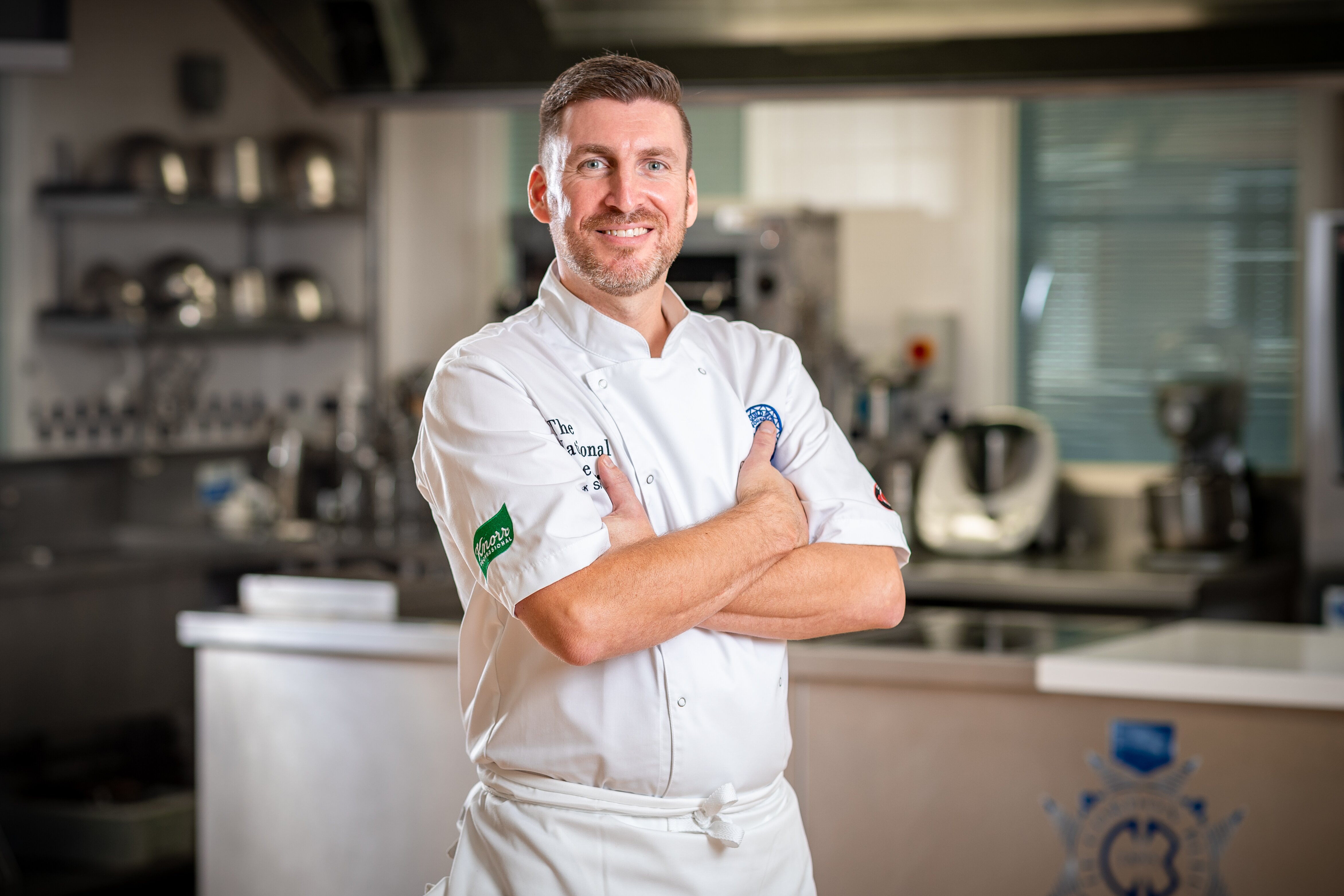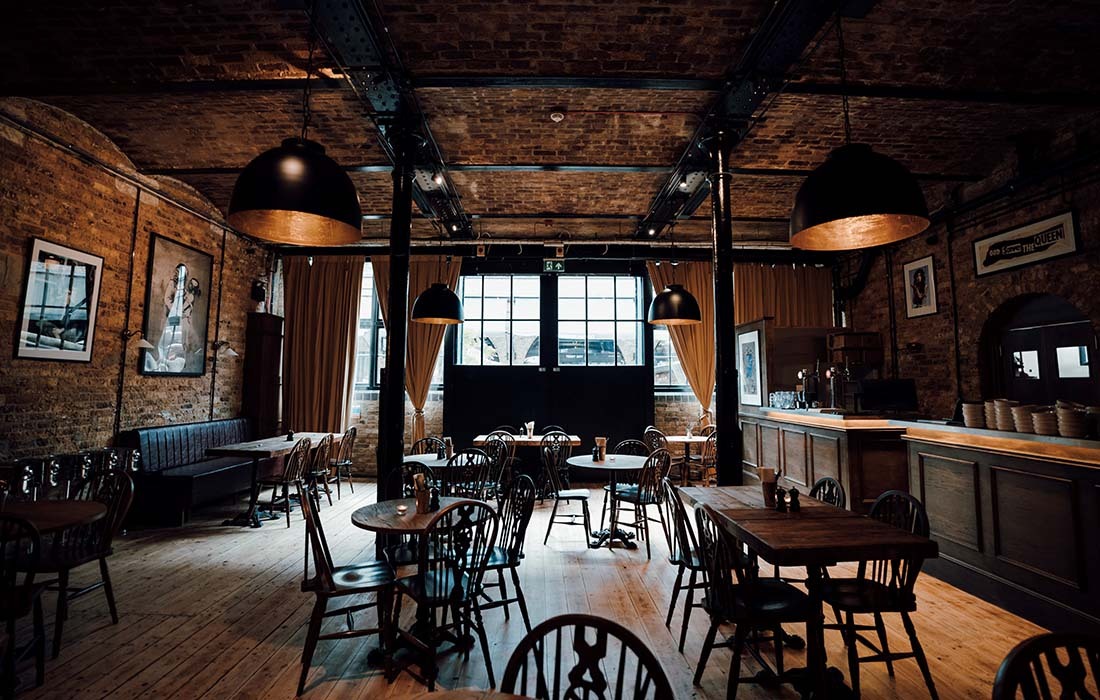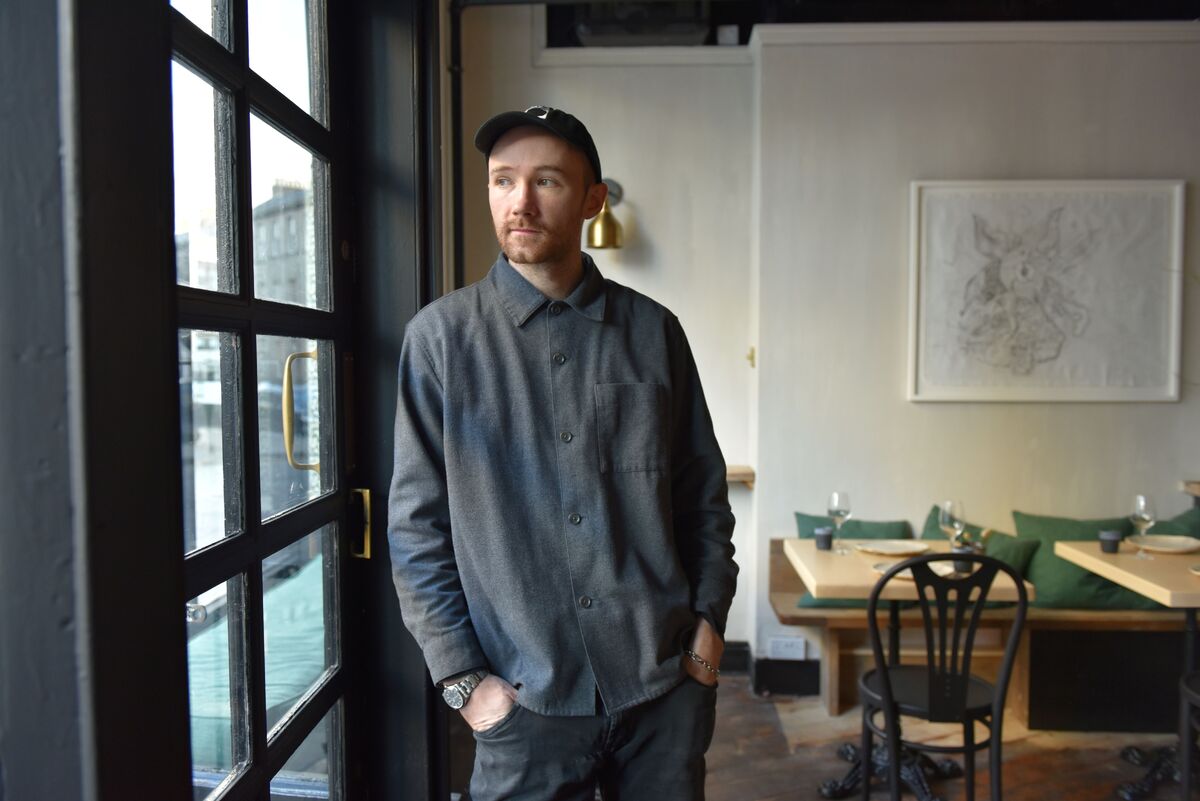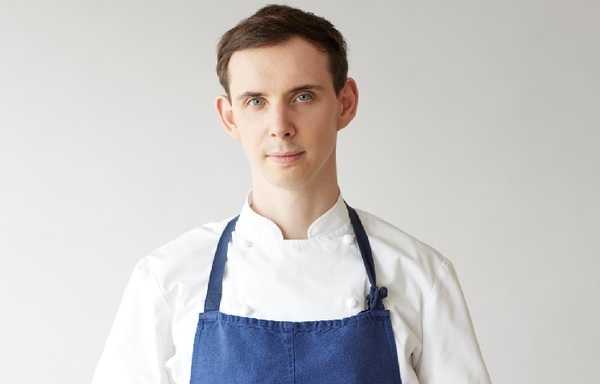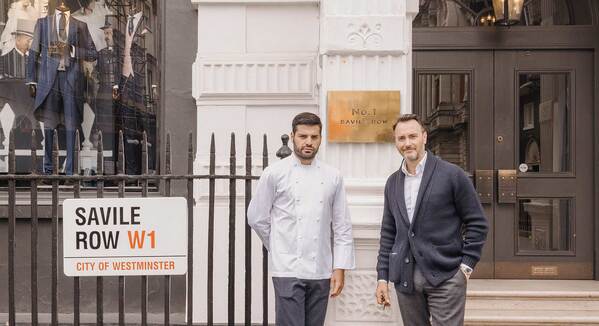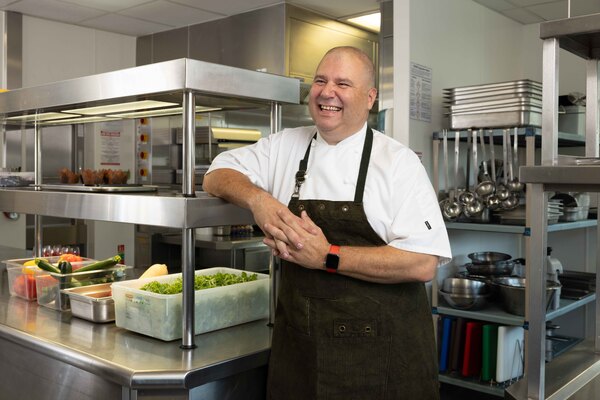Vacherin's Nick Smith on winning National Chef of the Year 2021
Craft Guild of Chefs’ National Chef of the Year 2021 winner Nick Smith tells Jennie Milsom what it was like to take part in a high-profile competition during a pandemic, and how his dad’s advice to ‘cook from the heart’ saw him through.
Nick Smith couldn’t sleep on the night he won National Chef of the Year (NCOTY), afraid he would wake up to discover it had all been a dream. Essex-based Smith, who, as head chef with caterer Vacherin London at City law firm Ashurst, runs everything from sit-down lunches to Champagne receptions and client parties, is no stranger to pressure. Yet his win came as a surprise. “It means everything to me. I’m thrilled to bits,” he says. “I’ve met people this year who I would only have dreamed of meeting.”

The prestigious competition, previously won by the likes of Gordon Ramsay (1992), Mark Sargeant (2002) and 2020 winner Steve Groves of Roux at Parliament Square, had some changes this year, but vice-president of Craft Guild of Chefs and competition organiser David Mulcahy was determined not to let a pandemic stop the event, which has been running since 1972.
“It would have been easy to say, ‘let’s just shelve it’, but I thought, let’s challenge ourselves and make it even better and even more exciting,” he says. “We took a decision to run it when many competitions were being cancelled. Chefs don’t just stop being passionate, creative and amazing. It symbolised something extremely positive in such a tough year.”
Chefs don’t just stop being passionate, creative and amazing. It symbolised something extremely positive in such a tough year
Each year’s competitors are a snapshot of the industry, from bars and gastropubs to foodservice and fine-dining. The final – a two-hour cook-off – is traditionally held as a staged event with crowds, commentary and camera crews at the Restaurant Show at Olympia, London. Unsurprisingly, this year’s event was cancelled and instead a recording of the NCOTY final, filmed behind closed doors at Le Cordon Bleu in London, was screened online last week, with winners announced shortly after.
Even physically distanced from the situation, awaiting the big reveal was a nail-biting affair. In real time, competitors had been waiting three weeks since competing to find out who won. Smith says: “You start doubting yourself. I almost talked myself out of thinking that I had a chance of winning. I drove my wife mad. It was a long three weeks.”
A long journey
Entries had opened, as usual, in February before the industry knew what was coming. By March, with the world falling under the grip of the pandemic, Mulcahy realised they had an issue. “People’s priorities had changed. They weren’t sure if their jobs were going to be there or if their businesses were going to stay open.”
So, amid the chaos and uncertainty of an industry on its knees, the organisers shifted gear. Instead of running the semi-finals as usual, they invited the 40 shortlisted competitors to put together a video presenting a dish which, in two to three bites, summed them up as a chef. “It gave us a real insight into who that chef was, their true passion. It turned out to be a fantastic addition,” Mulcahy says.
The panel of judges, including Phil Howard (Elystan Street) and Ben Tish (Norma), were led by chair Paul Ainsworth (Paul Ainsworth at No 6), to whittle the entrants down the list down to the final 10.
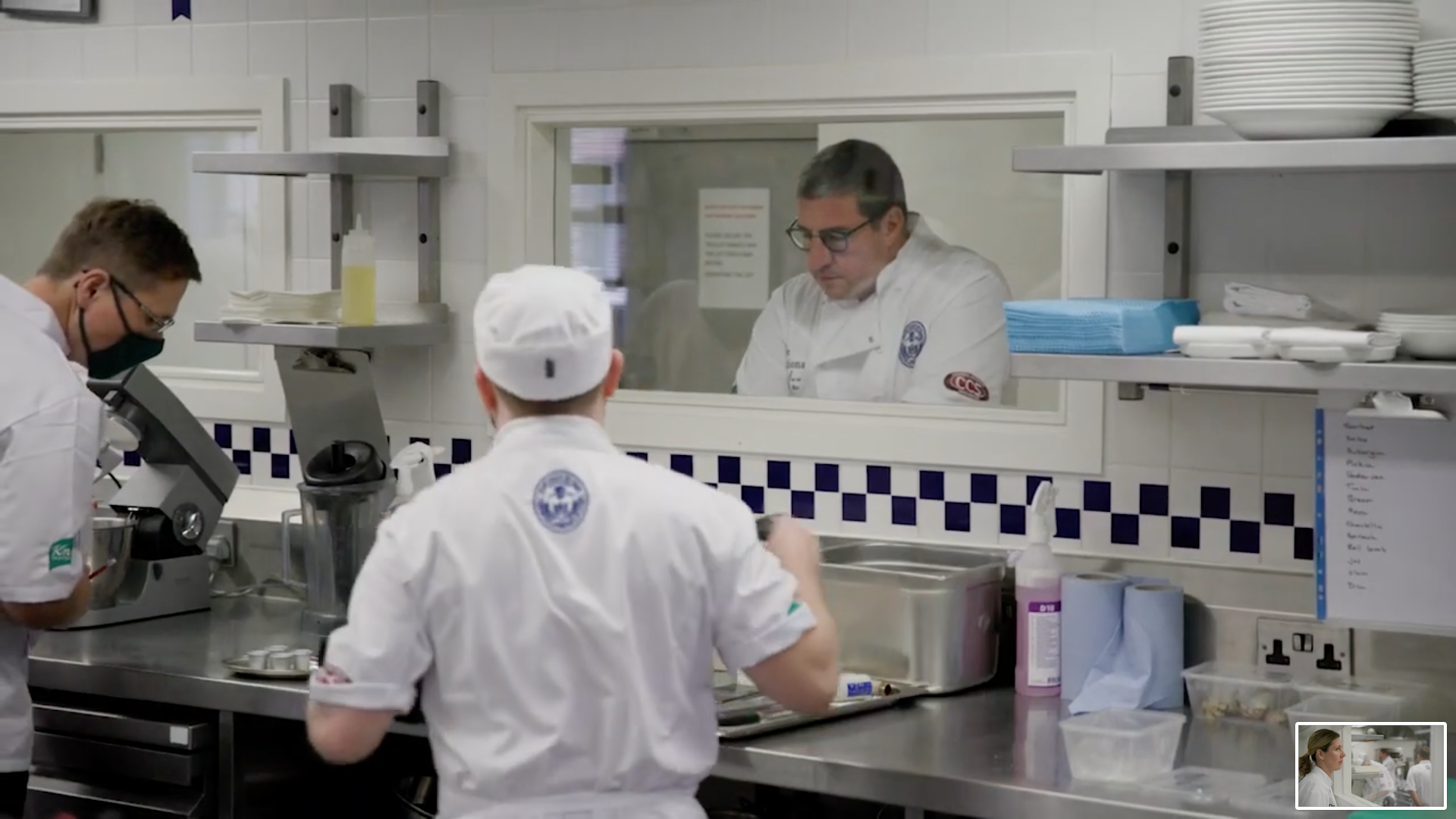
Under normal circumstances, the finalists would have had a week to devise a menu with ingredients from a ‘mystery basket’. This year, to give judges the opportunity to sample their work, they were invited to present their three-course menus from the original online entries, with seasonal tweaks allowed.
Sweet victory
As well taking the title, Smith also scooped the Best Pastry Award for his ‘sweet Eve strawberry split’ – inspired by the ice-lolly – which consisted of clotted cream custard and strawberry panna cotta. The dessert’s success was quite a feat considering that, on the day, the chiller in the competition kitchen wasn’t as cold as the one with which he had practised, so it almost didn’t set in time.
However, the dish went on to earn him praise from ‘pastry master’ Graham Hornigold, director of Smart Patisserie, who declared his flavours “balanced”. Smith says: “I couldn’t believe he said that. I got goosebumps. And when they told me it had won, I was absolutely gobsmacked.”
A reluctant chiller wasn’t the only hiccup for Smith during the tense two hours of the final. Under intense scrutiny from the judges, the crispy fish-skin wafer for his gazpacho starter snapped as he was assembling the dish. He recalls: “I caught it and it chipped. I went to cut the second piece but I broke it again – I couldn’t believe it! – but I managed to square it back up. I had one chance and I put it on and it was OK.”
His gazpacho was a deconstruction of the traditional dish in three elements: tomato, hollowed out and filled with hay-smoked bream and a tomato jelly; cucumber, compressed with bream tartare and cucumber flowers; and poached bream with orange cherry tomatoes. “They were all really humble ingredients. That’s what I love about being a chef – you’re using innovation and passion and turning it into something beautiful. And when people eat it and go, ‘wow’, there is no better reward.”
That’s what I love about being a chef – you’re using innovation and passion and turning it into something beautiful
The dish he was least confident in – a main course of Romney Marsh lamb with roe ravigote, fennel and samphire – was the one he ended up nailing on the day. “There were so many elements at the last minute – I was cooking the loin, the liver, the roe. When I plated it up, the lamb was fantastic, full of flavour and tender. I couldn’t have done any more.”
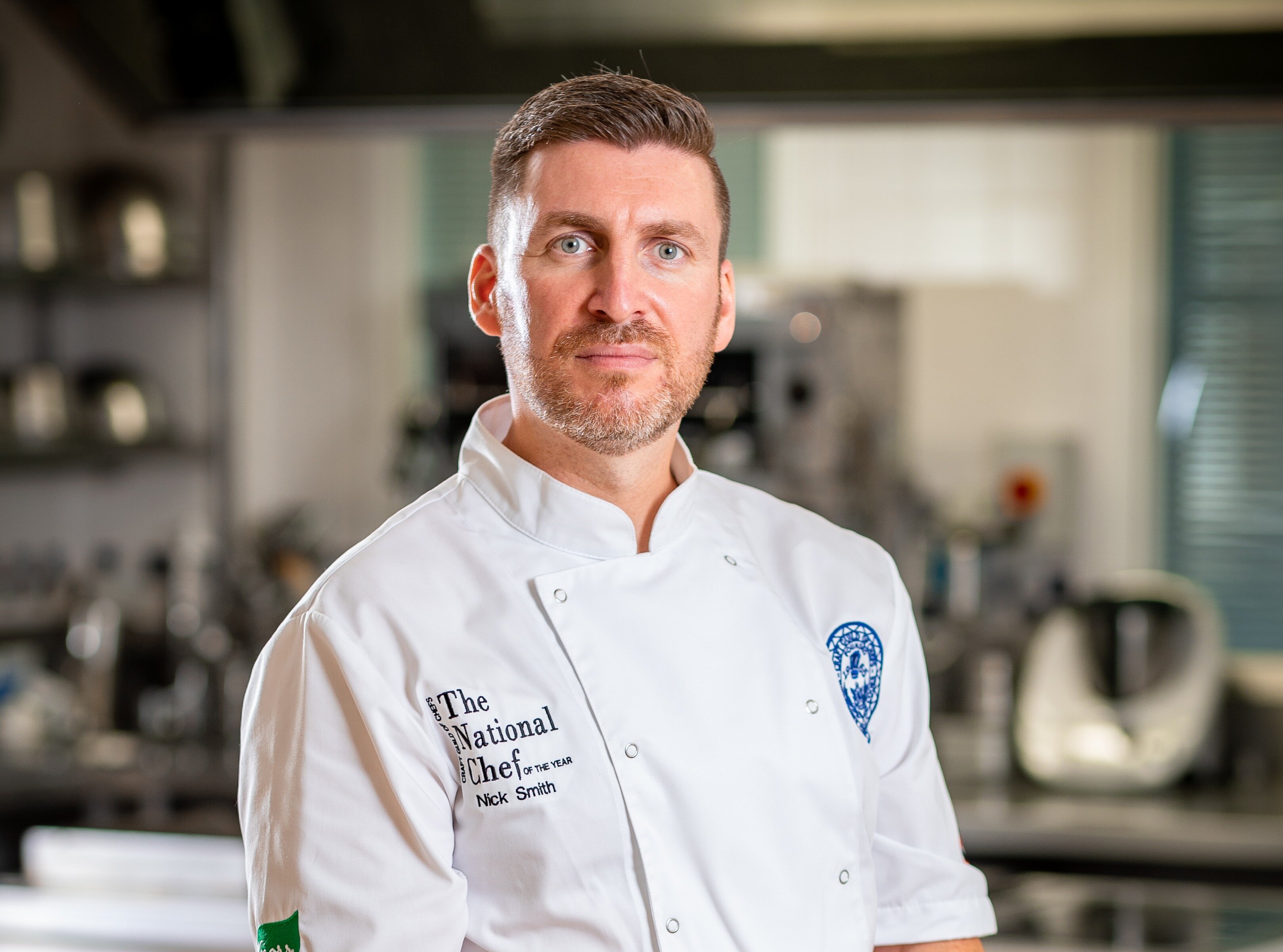
Lessons learned
Unsurprisingly, the whole experience was a learning curve for everyone. Mulcahy says: “I think that this year, more than ever, I’ve learned more about the people. We’ve had to engage in a different way – Zoom call after Zoom call with competitors, talking through the details. There were a lot of unknowns. Wearing masks and other new rules, on top of all the other pressures... It takes its toll.”
This year also saw the highest-placed female chef in the competition’s history with April Lily Partridge, previously of the Ledbury (which closed in June) taking third place. Partridge had previously placed second in Young National Chef of the Year 2017, pipped to the post by Ruth Hansom of the Princess of Shoreditch in east London. Mulcahy says: “I would love nothing better than to see a female winner. The restaurant world has every ethnicity and gender.
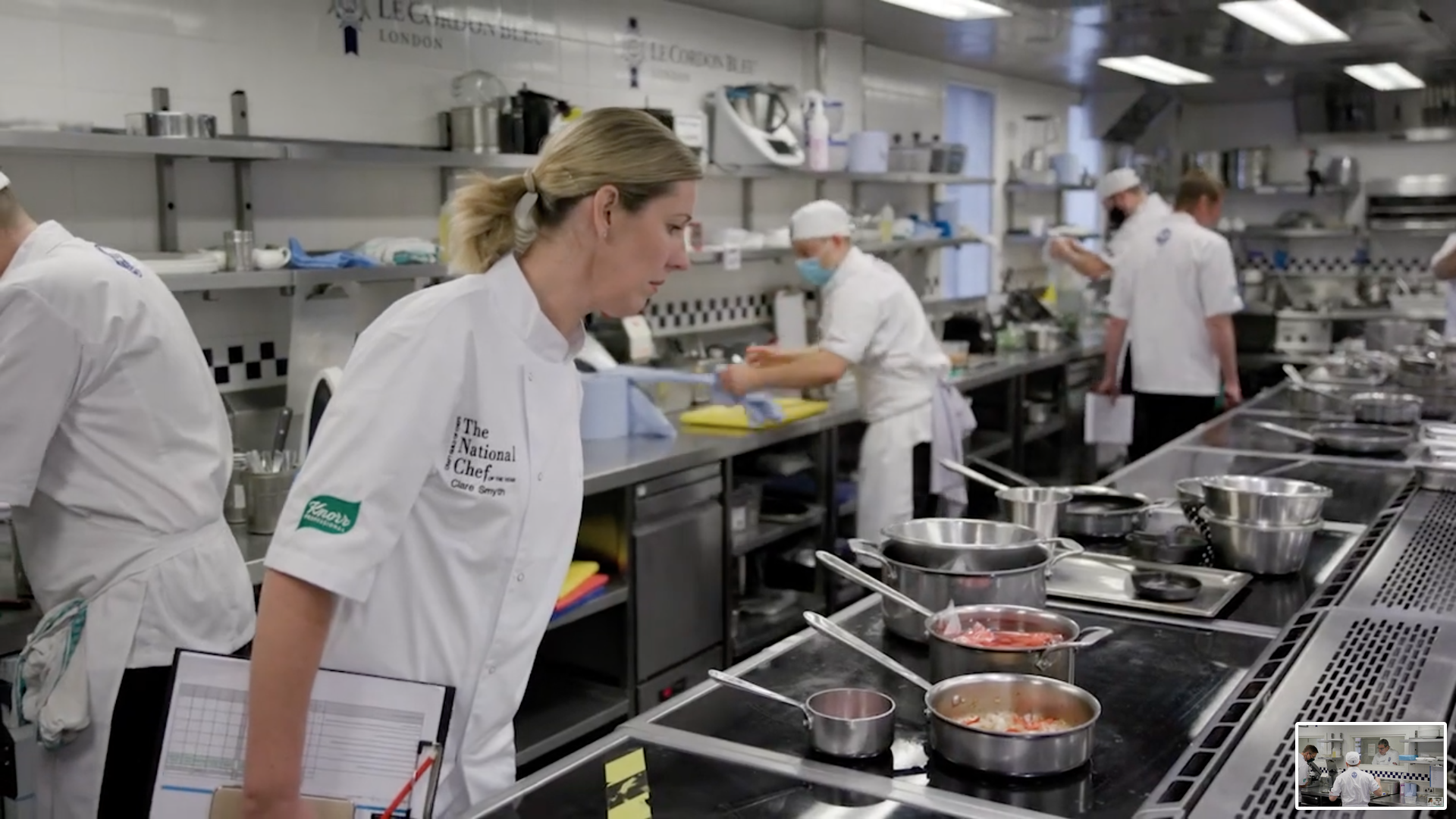
“The young chefs this year were extremely diverse and a really great snapshot of who’s in the industry. We had two females in the final. The senior chefs are still quite dominated by men. We can talk about diversity and encourage judges with a strong presence in the industry to encourage their teams to enter and give them support. We are on a journey.”
Mulcahy is confident that this year’s experience will shape the way future competitions are run and will continue to include some of the best adaptations, such as a “more tech-friendly” approach. He adds: “It’s been worth it, for sure. We’ll keep some of the changes we made because they were great ideas.”
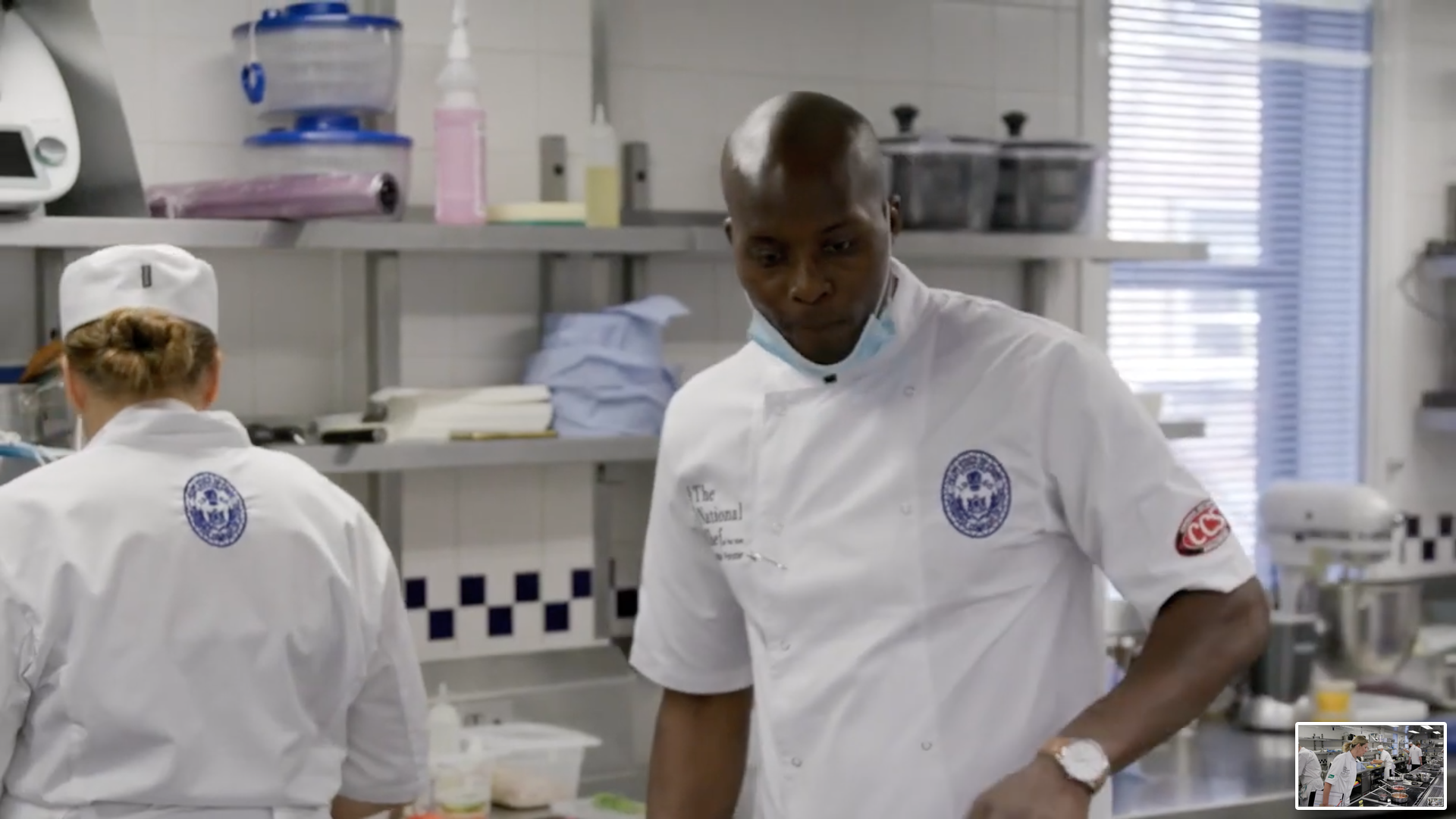
Seasoned competitor Smith would urge anyone to compete, despite potential knockbacks and nerves. “It’s done so much for me. In the kitchen you’re always learning, but the amount I’ve learned from competing, I wouldn’t have learned in the kitchen. I’ve pushed myself forward. I’ve refined myself.”
In the kitchen you’re always learning, but the amount I’ve learned from competing, I wouldn’t have learned in the kitchen
As well as a trip to Valrhona in France, Smith also walks away with prize money of up to £7,500 to create his own digital recipe book or media training to raise his profile. Inspired by 2019 titleholder Kuba Winkowski, founder of Kubarn, he says his ultimate dream is to open his own restaurant.
“My dad always said to me, when I started cheffing, to do everything from the heart. You’ve got to love it and that’s how I treated the competition. I wanted to show I was committed, and I wanted to do my best.”
My dad always said to me, when I started cheffing, to do everything from the heart. You’ve got to love it and that’s how I treated the competition
Mulcahy agrees: “The winners and all the competitors are going to be recognised and celebrated for having a go, getting stuck in and focusing on something that ultimately will do them and their career good. When everything else was taken out of the chefs’ control, NCOTY has given them something to think about and work towards. It’s been an awful but very special year for the competition and Nick is a remarkable winner.”
Whatever Smith does next, he is determined not to waste a moment. “I want to take every opportunity. I will invest back into the Guild and give back as much as they’ve given me.”
NCOTY – The final
Judges Chair of judges: Paul Ainsworth (Paul Ainsworth at No 6, Caffè Rojano, Padstow Townhouse, Mahé and the Mariners, all in Cornwall); Claude Bosi (Bibendum, London); Clare Smyth (Core by Clare Smyth, London); Frederick Forster (NCOTY 2011 and head chef at the Don restaurant, London); Russell Bateman (NCOTY 2014 and former head chef at Pétrus, London); and Kuba Winkowski (NCOTY 2019 and founder of Kubarn)
The brief To create and produce a three-course menu, for two covers, in two hours, demonstrating a push for British ingredients and sustainability.
- Starter A “San Sebastián, modern-style tapas”, consisting of three different plates per portion, for two guests (six plates in total), all using the core ingredient of fresh gilt-head bream
- Main A lamb dish, sourced from the UK and Ireland coastline, using both a prime and offal cut (two cuts in total), suitably garnished
- Dessert A showstopping dessert of competitors’ choice, focusing on late summer berries ## Young National Chef of the Year (YNCOTY)
Young National Chef of the Year is a separate competition for professional chefs, aged 25 and under, working across all sectors of the industry. Selection is by invitation only for those who have won or come highly placed in a recognised culinary competition in the UK.
This year, instead of a semi-final, those from 10 key culinary competitions across the country were invited to compete.
The judges Chair of judges: Hrishikesh Desai (NCOTY 2010 and executive chef at the Gilpin Hotel & Lake House); Alyn Williams (NCOTY 2012); Chantelle Nicholson (Tredwells, London); Julie Walsh (Le Cordon Bleu, London); and Steve Munkley (the Royal Garden hotel, London)
The brief To create and produce a three-course menu in two hours, consisting of:
- Starter An “innovative” vegetarian velouté with freshly prepared ravioli
- Main An Asian-inspired dish using a fillet of Norwegian cod with a light sauce
- Dessert A “modern interpretation” of a classic bread and butter pudding, using a seasonal stone fruit to form a significant part of the dish
Both the starter and the main course had to include one or more ‘Future 50’ sustainable foods, such as walnuts, watercress or wild rice.
Prizes A culinary trip to Norway with Michel Roux Jr; a stage in a Michelin-starred restaurant
The winner Edwin Kuk, junior sous chef at the Art School restaurant, Liverpool.
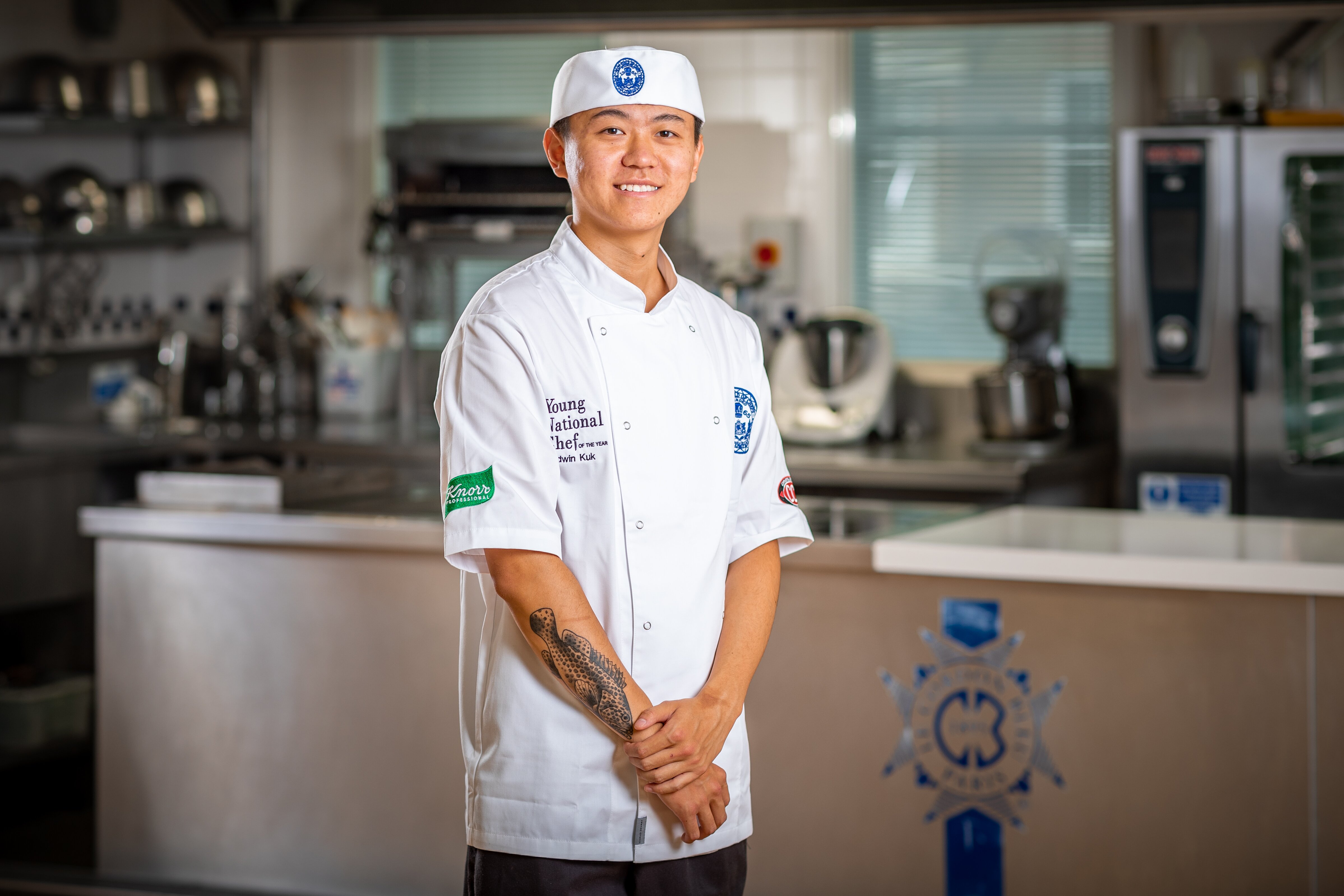
Kuk, 22, started working in kitchens at the age of 16 before going on to study professional cookery. He drew on his experience of growing up in Hong Kong as the inspiration for his main course, which included lotus root and a broth made from dried squid.
He said taking part in the competition had taught him how to plan and manage his time and how to work under pressure – impressively, he completed his three dishes in the final with four minutes remaining.
His advice for aspiring chefs thinking about entering the competition next year? “Just do it. Don’t be afraid – just keep trying. Don’t stay in your comfort zone. Practice and try your best.”
Photography by Pixelbox



